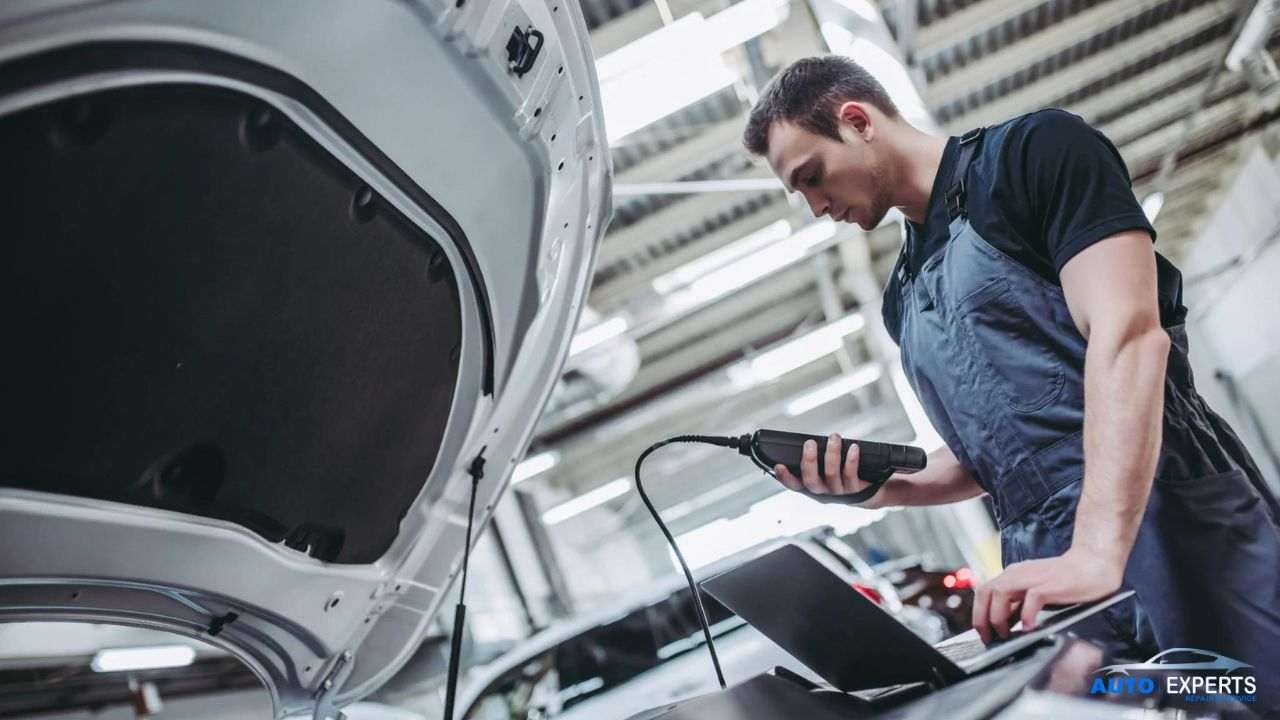Maintaining your vehicle’s engine is crucial for its performance, longevity, and efficiency. An engine performance check is a vital part of regular vehicle maintenance, helping you prevent costly repairs and ensure your car is always running at its best. In this comprehensive guide, we will explore the importance of engine performance checks, what they involve, the benefits they offer, and tips for ensuring your engine remains in top condition.
Why Engine Performance Checks Are Essential
Your car’s engine is a complex machine with many moving parts that need to work in harmony. Over time, wear and tear can affect these components, leading to decreased performance, increased fuel consumption, and potential breakdowns. Regular engine performance checks are essential for several reasons:
1. Preventing Costly Repairs
One of the most significant advantages of regular engine checks is the ability to catch minor issues before they escalate into major problems. Identifying and addressing small issues early can save you from expensive repairs and parts replacements down the road. For example, a minor oil leak, if left unchecked, can lead to engine damage that requires costly repairs.
2. Improving Fuel Efficiency
An engine that is running at peak performance is more fuel-efficient. When components such as spark plugs, fuel injectors, and air filters are clean and functioning correctly, your engine burns fuel more efficiently. This means you’ll spend less money on gas and reduce your carbon footprint.
3. Enhancing Vehicle Performance
A well-maintained engine delivers better acceleration, smoother rides, and more reliable performance. Engine performance checks help ensure your vehicle responds well to your driving needs, whether for daily commuting, weekend getaways, or long road trips.
4. Increasing Safety
A poorly maintained engine can lead to unexpected breakdowns or accidents. Regular checks help ensure your vehicle is safe to drive, reducing the risk of failures on the road that could endanger you or others.
5. Extending Engine Life
Regular maintenance can significantly extend the life of your engine. By keeping the engine in good condition, you can avoid premature wear and tear and ensure it runs smoothly for years to come.
6. Improved Resale Value
A well-maintained vehicle with a documented history of regular engine checks is more attractive to potential buyers. It can command a higher resale value when you decide to sell or trade in your vehicle.
7. Peace of Mind
Knowing your vehicle is in optimal condition provides peace of mind while driving. You can have confidence in your vehicle’s performance and reliability, whether commuting to work or embarking on a long journey.
What Does an Engine Performance Check Involve?
An engine performance check is a comprehensive inspection that covers various aspects of your vehicle’s engine and its related systems. Here’s what a typical engine performance check involves:
1. Diagnostic Scan
Technicians use specialized diagnostic tools to connect to your vehicle’s electronic control unit (ECU). This scan retrieves error codes that help identify issues with sensors, actuators, or other electronic components. Modern vehicles have numerous sensors and control modules that communicate with each other. A diagnostic scan ensures these systems function correctly and efficiently.
2. Visual Inspection
A thorough visual inspection of the engine bay checks for signs of wear and tear, leaks, or damaged components. This inspection can reveal issues such as cracked hoses, worn belts, or leaking fluids. Technicians look for visible signs of corrosion, fluid leaks, or any components that may have come loose or become damaged over time.
3. Compression Test
A compression test measures the pressure in each cylinder, indicating the health of the engine’s internal components. Low compression in one or more cylinders can signal issues such as worn piston rings, valve problems, or head gasket failure. This test is crucial for assessing the engine’s overall mechanical condition.
4. Fuel System Check
The fuel system is inspected to ensure proper fuel delivery to the engine. This includes checking the fuel pump, fuel injectors, and fuel filter for clogs or malfunctions. A well-functioning fuel system is essential for maintaining engine performance and efficiency.
5. Ignition System Check
The ignition system, including spark plugs, ignition coils, and wiring, is examined to ensure efficient ignition of the fuel-air mixture. Faulty ignition components can lead to poor engine performance, increased emissions, and reduced fuel efficiency.
6. Exhaust System Check
The exhaust system is inspected for leaks, damage, or blockages. A well-functioning exhaust system is crucial for removing harmful gases from the engine and maintaining performance. Issues with the exhaust system can lead to increased emissions and reduced engine efficiency.
7. Air Intake System Check
The air intake system, including the air filter and intake manifold, is checked for obstructions or damage. Proper airflow is essential for optimal combustion and engine efficiency. A clogged air filter can restrict airflow, leading to decreased performance and increased fuel consumption.
8. Coolant System Inspection
The coolant system is checked for leaks, blockages, and proper fluid levels. The cooling system plays a crucial role in regulating the engine’s temperature and preventing overheating. Issues with the coolant system can lead to engine overheating and significant damage.
9. Battery and Charging System Test
The battery and charging system are tested to ensure proper voltage and charging capabilities. A weak or failing battery can lead to starting issues and other electrical problems. The charging system, including the alternator, is checked to ensure it supplies the correct voltage to the battery and other electrical components.
Benefits of Regular Engine Performance Checks
Regular engine performance checks offer numerous benefits that contribute to the overall health and longevity of your vehicle:
1. Extended Engine Life
Regular maintenance can significantly extend the life of your engine. By keeping the engine in good condition, you can avoid premature wear and tear and ensure it runs smoothly for years to come.
2. Improved Resale Value
A well-maintained vehicle with a documented history of regular engine checks is more attractive to potential buyers. It can command a higher resale value when you decide to sell or trade in your vehicle.
3. Peace of Mind
Knowing your vehicle is in optimal condition provides peace of mind while driving. You can have confidence in your vehicle’s performance and reliability, whether commuting to work or embarking on a long journey.
4. Cost Savings
Regular maintenance helps prevent major issues that require costly repairs. By investing in routine engine checks, you can save money in the long run by avoiding expensive breakdowns and replacements.
5. Environmental Benefits
A well-maintained engine produces fewer emissions, contributing to a cleaner environment. Regular checks help ensure your vehicle meets emissions standards and reduces its carbon footprint.
How Often Should You Perform an Engine Performance Check?
The frequency of engine performance checks depends on several factors, including your vehicle’s age, mileage, and driving conditions. However, as a general rule, it’s recommended to have an engine performance check every 12,000 to 15,000 miles or at least once a year.
Factors Influencing Frequency:
- Driving Conditions: If you frequently drive in harsh conditions, such as extreme temperatures, dusty environments, or heavy traffic, more frequent checks may be necessary.
- Vehicle Age: Older vehicles may require more frequent checks due to the increased likelihood of wear and tear.
- Manufacturer Recommendations: Always refer to your vehicle’s owner’s manual for specific maintenance recommendations from the manufacturer.
- Personal Driving Habits: Consider your driving habits and vehicle usage. If you regularly tow heavy loads, drive in mountainous regions, or engage in aggressive driving, more frequent checks may be warranted.
Tips for Maintaining Engine Performance
In addition to regular engine performance checks, here are some tips to help you maintain your engine’s performance and keep it running smoothly:
1. Change Oil and Oil Filter Regularly
Regular oil changes are essential for keeping your engine’s internal components lubricated and functioning correctly. Follow your vehicle manufacturer’s recommendations for oil change intervals, and always use the recommended oil type and grade.
2. Use High-Quality Fuel
Using high-quality fuel can help keep your engine clean and running efficiently. Avoid using low-quality or contaminated fuel, which can lead to deposits and engine performance issues.
3. Replace Air Filters
A clean air filter ensures proper airflow into the engine, promoting efficient combustion. Check your air filter regularly and replace it when it becomes dirty or clogged.
4. Monitor Fluid Levels
Regularly check and top off essential fluids, including coolant, transmission fluid, and brake fluid. Proper fluid levels are vital for maintaining engine performance and preventing damage.
5. Inspect Belts and Hoses
Belts and hoses are critical components that can wear over time. Inspect them regularly for signs of wear, cracks, or leaks, and replace them as needed to prevent breakdowns.
6. Listen for Unusual Noises
Pay attention to any unusual noises coming from your engine, such as knocking, ticking, or squealing. These sounds can indicate potential issues that require immediate attention.
7. Check Tire Pressure
Proper tire pressure ensures your engine doesn’t have to work harder than necessary. Regularly check your tire pressure and keep it within the recommended range for optimal fuel efficiency and performance.
8. Stay Up-to-Date with Maintenance
Follow your vehicle’s maintenance schedule as outlined in the owner’s manual. Regularly scheduled maintenance helps keep your engine repair and other components in top condition.
Conclusion
An engine performance check is a crucial aspect of vehicle maintenance that ensures your engine runs efficiently and reliably. Regular checks help prevent costly repairs, improve fuel efficiency, enhance performance, and increase safety. By investing in routine engine performance checks, you can enjoy a smoother, more reliable driving experience and extend the life of your vehicle. Remember to consult your vehicle’s manual and a trusted mechanic for tailored maintenance advice, ensuring your vehicle remains in top condition for years to come. Taking the time to care for your engine now will pay off in the long run, providing you with a vehicle that performs at its best and offers peace of mind on the road.





